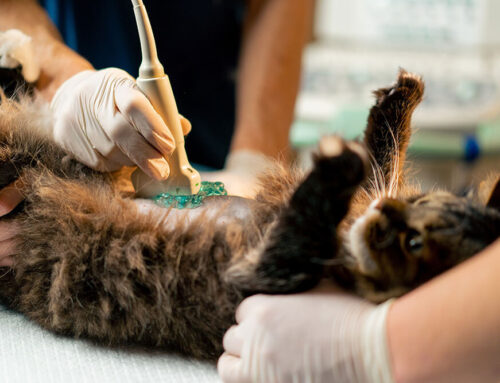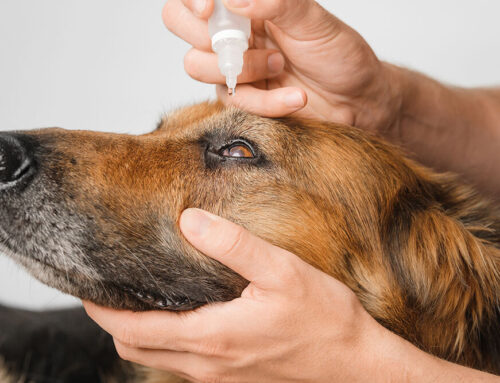Pets often don’t exhibit illness signs until their condition is advanced, which is one reason regular wellness screening tests are so important. Wellness screening results provide critical insights into your four-legged friend’s health, so the south Austin veterinarians at Oliver Animal Hospital want to explain how yearly testing benefits your pet.
#1: Veterinary wellness screening tests establish a healthy baseline for your pet
Performing diagnostics on your pet while they are healthy helps our team establish their normal baseline. While laboratories determine a normal range for diagnostic values, every pet is different, and their “normal” result may fall in the high, middle, or low end of the range. Rarely, a pet’s “normal” falls slightly outside the normal range, which is important information, because we can better diagnose and treat your pet’s condition when they become ill or need emergency care. The more data our team has about your pet’s normal values, the better we can understand their condition.
#2: Veterinary wellness screening tests help track changes in your pet’s results
When our team has several years’ worth of diagnostic data about your pet’s health, we can track subtle changes that may indicate an emerging health condition. For example, if your pet’s red blood cell (RBC) count is consistently at the normal range high end but at the range’s low end at their annual wellness check, our team may run more diagnostics or recheck the value a few weeks later to determine if a health problem is indicated. If we didn’t have historic data on your pet’s diagnostic values, we likely wouldn’t realize a low range RBC indicates your pet has a problem, since the value is generally considered normal.
#3: Veterinary wellness screening tests help detect early stage diseases
Your pet’s ancestors instinctively hid illness and pain, because that indicated weakness and made them a predator’s prime target. While your four-legged friend doesn’t have to worry about roaming lions, tigers, or bears, they maintain these instincts and often don’t exhibit illness signs until their condition is advanced. Wellness screening tests are vital for detecting conditions in the early stages when they are easier to manage, and your pet typically has a better prognosis. Screening diagnostics we may recommend to detect diseases include:
- Complete blood count (CBC) — A CBC assesses your pet’s RBCs, white blood cells (WBCs), and platelets. Abnormalities can indicate conditions such as anemia, iron deficiencies, infection, stress, clotting disorders, and certain cancer types.
- Biochemistry profile — A biochemistry profile provides key information about your pet’s organ function and overall health. Abnormalities can indicate conditions including diabetes, electrolyte disturbances, kidney and liver disease, and other health problems.
- Urinalysis — Your pet’s urine evaluation provides valuable information, with abnormalities indicating issues such as urinary calculi, urinary tract infection, kidney disease, and diabetes.
- Thyroid panel — Senior dogs are at increased risk for hypothyroidism, and senior cats are at increased risk for hyperthyroidism. We may recommend a thyroid panel to assess your senior friend’s thyroid levels.
#4: Veterinary wellness screening tests help protect your pet from parasites
Parasites often target pets, who may not show infection signs, especially in the early stages. Parasite screening tests help our team detect infections, so we can prescribe the appropriate treatment. Testing we may recommend includes:
- Heartworm testing — The American Heartworm Society recommends annual testing for heartworms in dogs, including those on year-round heartworm preventives. Heartworms, which are transmitted by mosquitoes, can significantly damage your pet’s heart and lungs, yet signs typically don’t manifest until the heartworms are well established, and treatment is expensive and can be dangerous. Annual heartworm testing ensures these parasites don’t compromise your pet’s health and ensures their heartworm preventive is effective.
- Tick-borne disease testing — Ticks can transmit debilitating diseases, such as Lyme disease, ehrlichiosis, Rocky mountain spotted fever, and anaplasmosis. Regular tick-borne disease testing helps our team determine if your pet has been exposed and to decide if treatment is necessary.
- Fecal test — A simple fecal test can detect gastrointestinal (GI) parasites, such as hookworms, roundworms, whipworms, giardia, and coccidiosis, which can cause nutritional deficiencies and GI upset in your four-legged friend.
#5: Veterinary wellness screening tests help prevent emergencies
Unmanaged health conditions, such as diabetes, kidney and liver disease, and electrolyte abnormalities, can lead to the need for emergency attention. Regular veterinary wellness screening tests help our team detect these issues, manage them appropriately, and avoid an emergency veterinary visit.
#6: Veterinary wellness screening tests help our team choose appropriate medications for your pet
Some medications affect your pet’s organs, and knowing your pet’s normal diagnostic baseline helps our team choose appropriate medications to ensure your pet can tolerate the drug. We may also recommend more frequent testing to monitor the medication’s effect on your pet.
#7: Veterinary wellness screening tests help keep senior pets healthy
Senior pets are at higher risk for numerous health conditions, including cancer, diabetes, arthritis, and thyroid problems, and should be evaluated by a veterinary professional at least every six months to ensure they are as happy and healthy as possible.
#8: Veterinary wellness screening tests save you money

Scheduling regular wellness screenings lowers the impact on your pocket book. Veterinary wellness screening tests are much less costly than an emergency bill, and treating early stage conditions is typically less expensive.
Contact the south Austin veterinarians at Oliver Animal Hospital, so you and your pet reap the benefits of regular veterinary wellness screening tests.








Leave A Comment